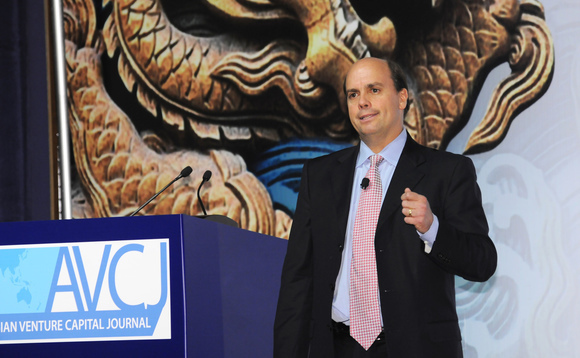
Picking the winners

“Active management works,” was the resounding message of the keynote address given by Steven Barnes, MD of Bain Capital at the AVCJ Forum.
But does it always? The debate over statistics – which include China's PE-related capital compared to GDP growth; the number of funds in India; the average return of LPs' portfolios – could be argued on both sides of the coin. However, when distilled down, GPs, LPs and service providers alike for once appeared to be speaking the same language, agreeing on a single takeaway: choose wisely, because the industry is no longer a walk down easy street, and everyone is more discerning.
This sentiment was echoed by TPG's David Bonderman, who predicted that a "crisis of expectations," as well as a "differentiation of investment strategies," remain two of the four running themes for the next few years in private equity.
Although one LP claimed there were only a "handful of great GPs" in Asia (which "are not brand names") it does appear that fund managers are developing the foresight and the strategies to develop companies properly, not just capitalizing on China's macro story. Mirroring this, KKR Asia Managing Partner Joseph Bae explained that "our value-add is not in the capital, it is in the operations [consulting company] in-house, which is able to transform, streamline and optimize their portfolio companies."
This operational aspect is "more important for all firms," said Baring Private Equity Asia's Jean Eric Salata, "even from the origination standpoint, because it is about relationships." Other fund managers agreed that entrepreneurs in China are choosing to partner with firms not based solely on valuation, but on the ability of the team to help the company to grow, without a reliance on significant leverage.
"The management teams are much better today," said Affinity Equity Partners' KY Tang. Yet they still need assistance with more sophisticated plans for "cross-border expansion."
How many firms can do this, and do it well? This was the underlying question for most of the LPs. "I remember when I first started in this industry, you had to make almost 2x over the US in order to invest in Asia," said one. Those that can outperform are few and far between, but related success back to the ability to drive operational excellence. "We look for [fund] mangers that incentivize their portfolio companies not necessarily on the executive level, but one or two tiers down; we look for those that can add that ‘tuck under' of talent."
Again, it seems that more and more managers are owning up to Asia's private equity model – which is one of operations, more than financial finagling. "You need to develop a culture of working with companies in a trust-based, not a control approach," Barnes concluded in his closing remarks. "That is where you get the influence, and that is where you find returns."
Latest News
Asian GPs slow implementation of ESG policies - survey
Asia-based private equity firms are assigning more dedicated resources to environment, social, and governance (ESG) programmes, but policy changes have slowed in the past 12 months, in part due to concerns raised internally and by LPs, according to a...
Singapore fintech start-up LXA gets $10m seed round
New Enterprise Associates (NEA) has led a USD 10m seed round for Singapore’s LXA, a financial technology start-up launched by a former Asia senior executive at The Blackstone Group.
India's InCred announces $60m round, claims unicorn status
Indian non-bank lender InCred Financial Services said it has received INR 5bn (USD 60m) at a valuation of at least USD 1bn from unnamed investors including “a global private equity fund.”
Insight leads $50m round for Australia's Roller
Insight Partners has led a USD 50m round for Australia’s Roller, a venue management software provider specializing in family fun parks.








